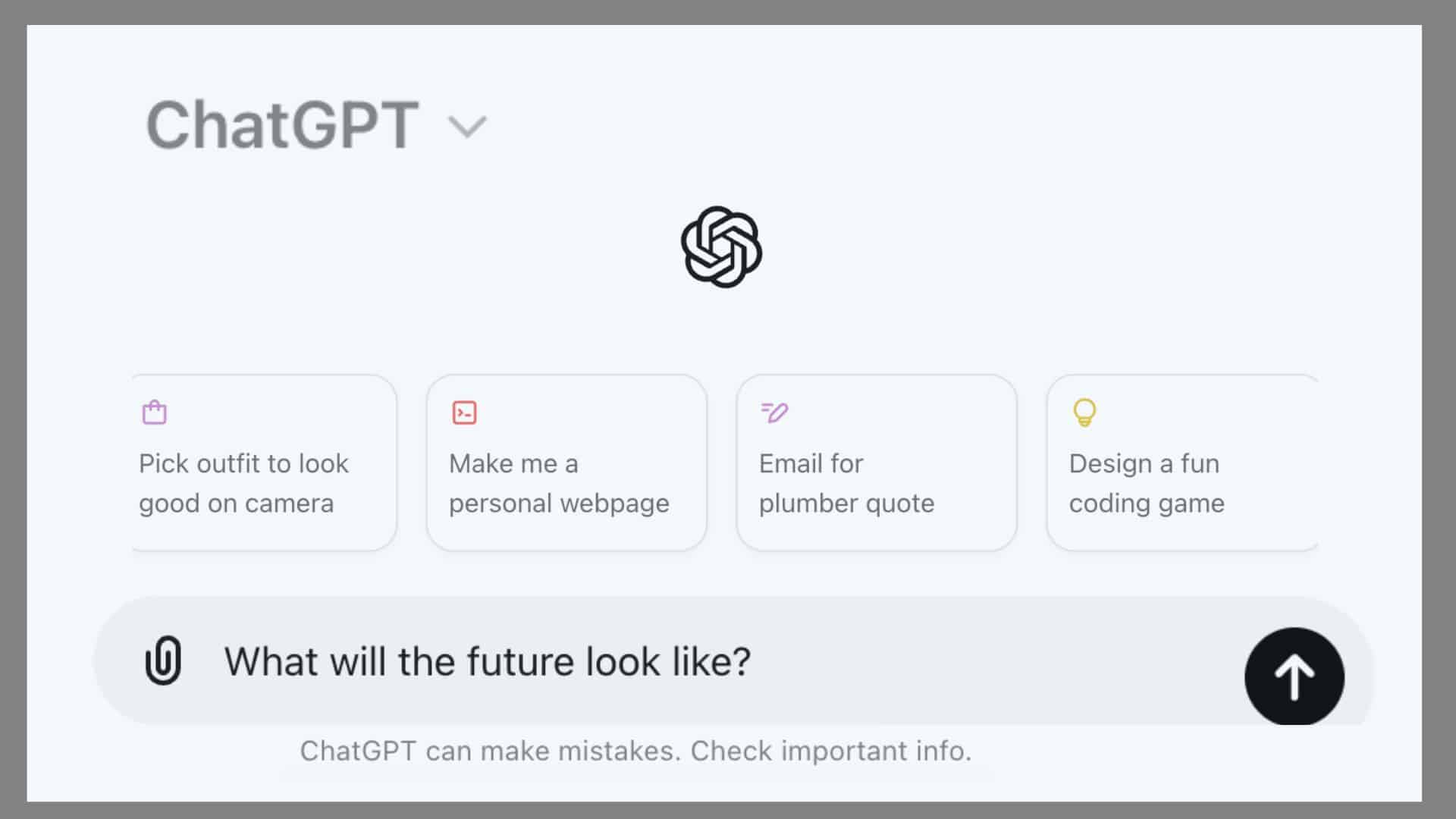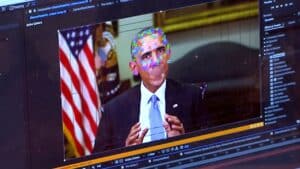Artificial intelligence will change our lives in ways difficult to imagine. But we are trying to imagine it anyway.

A chatbot user inquires about the future. (Illustration by News Decoder)
In the United States, firefighters are using artificial intelligence and a network of more than 1,000 cameras to help spot California wildfires. In Kenya, researchers are using AI for animal population counts to improve the efficiency of animal conservation efforts. In Ecuador, scientists are using AI to monitor and improve the health of forests. At the same time, people in the field of AI warn about catastrophes that come straight out of science fiction: rogue computer programs in control of our missiles, banking systems, electrical grid and our homes and cars.
At News Decoder, our correspondents are fascinated with the promise and peril of AI and have tackled its use in such areas as science, the military and health care. To help you decode the different possibilities of artificial intelligence we compiled a range of News Decoders on the topic.
Is Artificial Intelligence our “Oppenheimer moment”?
by Bernd Debusmann | 14 May 2024
The rapid advance of artificial intelligence has pushed the world to the brink of a technological revolution that will affect most of the world’s eight billion people. Although few will admit it, the tens of thousands of people who work on AI in the tech industry, which now employs more than nine million people in companies like Google, Open AI and Anthropic, don’t themselves know how it will all play out.

Creating a deep fake image of former U.S. President Donald Trump in prison. (Illustration by News Decoder)
Is this year of elections also the year of deepfakes?
by Sabine Berzina | 1 July 2024
Many people around the world already distrust their election systems. What will happen when artificial intelligence enters the picture? So far in 2024, AI tools have already been used for fake election endorsements, bot comments and spreading calls to boycott elections. Nevertheless, experts say we still rarely see the so-called deepfakes that are indistinguishable from authentic videos or would pose concerning consequences.
Who wants a therapist who’s robotic? But a robot therapist? Maybe.
by Sienna Mamoun and Alexa Taras | 8 August 2024
Artificial intelligence shows promise and peril. But some people might find it more comforting to tell their problems to a machine than a human. Chatbots can provide help to people who might need psychological consultation but can’t afford it, are leery of going to a human or who would have to wait for an appointment. Where a therapist has working hours, a chatbot is there 24 hours a day, every day.
Can a robot replace a radiologist?
by Haley Davis | 14 March 2024
It can spot cancer, answer medical questions and help develop drugs. But we don’t trust artificial intelligence to be our primary doctor just yet. The first AI medical computer system was developed at Stanford University in 1973, according to the National Library of Medicine. It is now being used in the medical field in a number of ways, ranging from drug development and disease diagnostics to surgical treatments.
Studying an intelligent animal using artificial intelligence
by | 22 August 2023
Lots of people watch whales. But telling males and females apart and one whale from another takes special expertise. One researcher is using artificial intelligence to identify the sex of a humpback whale.
Even AI thinks journalism is essential
by Marcy Burstiner | 2 April 2024
Ask an AI app if it will kill off journalism and you get a nuanced answer. But from a human point of view, things seem more black and white. The reality is that artificial intelligence could kill journalism without replacing it, leaving people without information they can rely on. When there are no reliable, credible sources of news, rumors spread and take on a life of their own. People panic and riot and revolt based on fears born from misinformation. Lawlessness prevails.
Deepfakes and AI spur disinformation and threaten democracy
by Stuart Grudgings | 18 January 2021
Fake news is already eroding our shared sense of reality. Now, deepfakes and AI stand to fuel disinformation and imperil democracy. It’s tempting to hope that disinformation and its corrosive effects on democracy may have reached a high-water mark with the events of January 6 and the end of Trump’s presidency. But trends in technology and society’s increasing separation into social media echo chambers suggest that worse may be to come.






